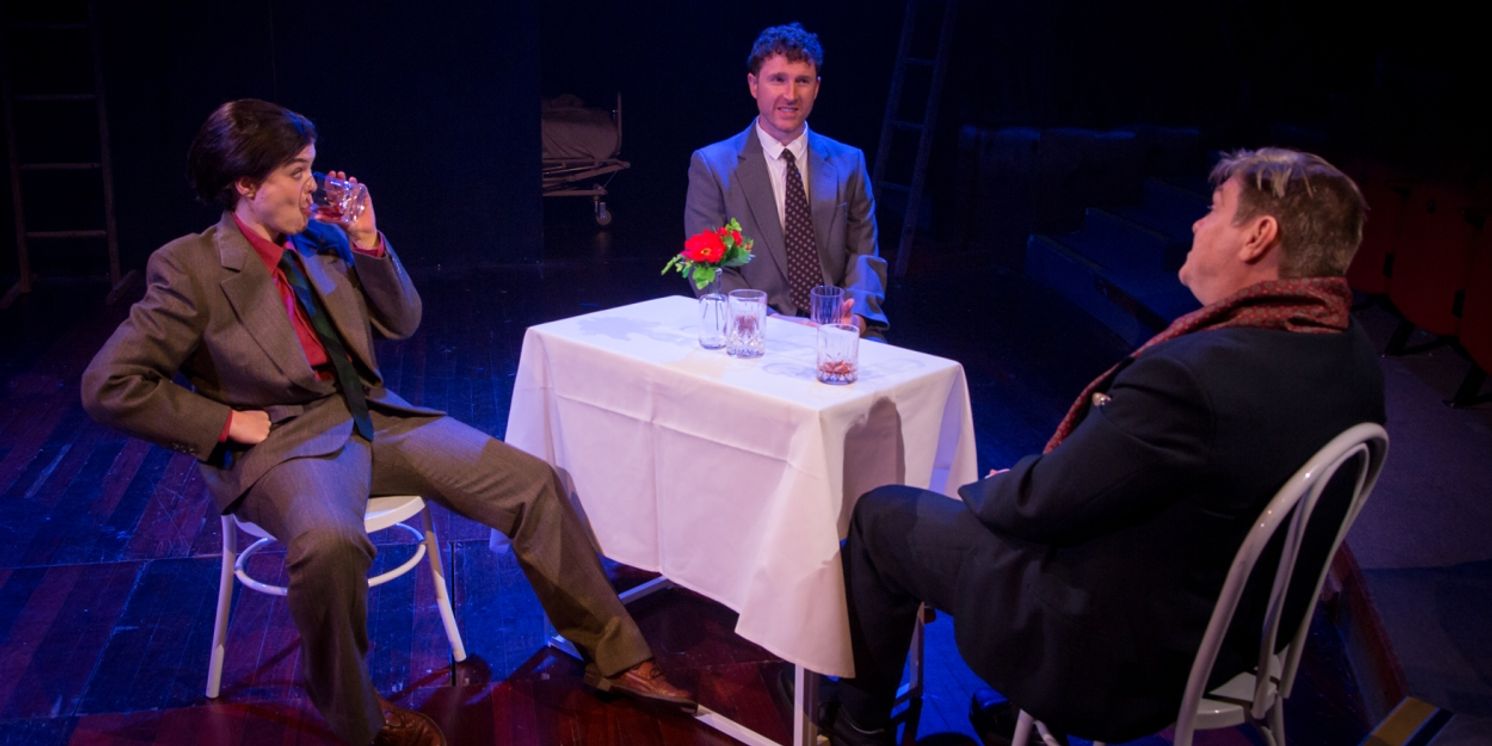Review: ANGELS IN AMERICA at Little Theatre, University Of Adelaide
Sexuality in 1980s America.

Reviewed by Ewart Shaw Thursday 2nd and Friday 3rd May 2024.
Tom Kushner’s Angels in America is a landmark play, a surreal and no-holds-barred view of gay life in 1980s America. This production is a landmark for Adelaide and the Adelaide University Theatre Guild. The Guild is the only company in Adelaide with the resources, imagination, and chutzpah to take on the challenge. For the non-Yiddish aware, chutzpah is audacity, with more than a hint of cheeky risk-taking. This is an epic experience both for the cast and indeed the audience, rewarding concentration with a huge amount of laughter, and many thoughts to carry away. The story is told in levels of reality. Guardian angels call out. People move between visions. Dummies speak. A question is asked in so many ways. How do we live? Kushner subtitles the play “a gay fantasia on national themes” and, like a grand symphony, themes appear and are subsumed, to reappear in complex variations.
In Larry Shafer’s The Normal Heart, staged recently by State Theatre, and also set in the same milieu, a conversation takes place about gay culture. “I thought gay culture was just having sex with men”. There is a lot of gay sex in this play, graphic, but not pornographic. There’s lots of explicit foreplay, and a very funny late-night anonymous encounter in a park. All of it is dramatically necessary and the nudity is a crucial moment in the character's lives. It works because the actors trust each other and care.
Director, Haley Horton, has a superb cast of eight articulate and focussed individuals. She is quick to credit her assistant director Tracey Walker.
It’s 1985. Ronald Reagan is president of the United States. AIDS, a sexually transmitted condition, is blowing the doors off closets across America. Karposi’s sarcoma, like the mark of Cain, is identifying homosexuals. One of them, the political fixer and corrupt lawyer, Roy Cohn, played by Brant Eustice, lets it be known he has liver cancer, rather than admit to any form of sexual weakness.
We follow the interlocking lives of people, gay and straight. Closeted Lewis Ironson, played by Lee Cook, abandons his HIV-positive partner Prior Walter, played by Matthew Houston. Closeted Mormon Joe Pitt, played by Lindsay Prodea, leaves his wife, Harper, played by Casmira Lorien, takes up with Lewis, and is offered a major job opportunity by Roy Cohn, who wants a mole inside the Justice Department in Washington to protect his criminal activities from investigation. Prior wanders the city, draped in black, and appears in one of Harper’s fantasies.
Belize the nurse, played by Eric Macdowell, touches all their lives. Joe’s mother, played by Kate Anolak, sells up in Salt Lake City to come to New York to save her son’s marriage or mortal soul, the two being closely linked to his heterosexual identity. There is an angel, played by Rachel Dalton, whose descent, wings clattering, brings the first play to a close.
Anolak opens both parts of the play, first as a rabbi at the funeral of Lewis Ironson’s mother, and then as the oldest surviving Bolshevik who tells a story about snakes shedding their skins. If the snake sheds the skin and the new skin is not formed underneath, the snake’s future is bad. This is one of the questions that underscores Kushner’s narrative. How do you prepare for change on what is, in this play, an apocalyptic level? It’s just one of the many observations and forecasts threaded through the text. The characters are on the threshold of revelation.
The cast biographies identify them as among our hardest-working actors, each of them pushing their boundaries. Watch out for Eric McDowell, a recent arrival from San Diego. In only his second time in stage, he shows real confidence and an impressive presence.
Karl Marx asserted that the first time history repeats itself, it is tragedy, and the second time it is farce. Contemporary America is caught in the farcical tragedy or tragical farce of Trump and the MAGA movement. Reagan had Cohn, Trump has Giuliani. The roots of that failure of the democratic process are laid out by Kirshner in one brief exchange. Great playwrights can read the winds.
Reader Reviews
Videos


